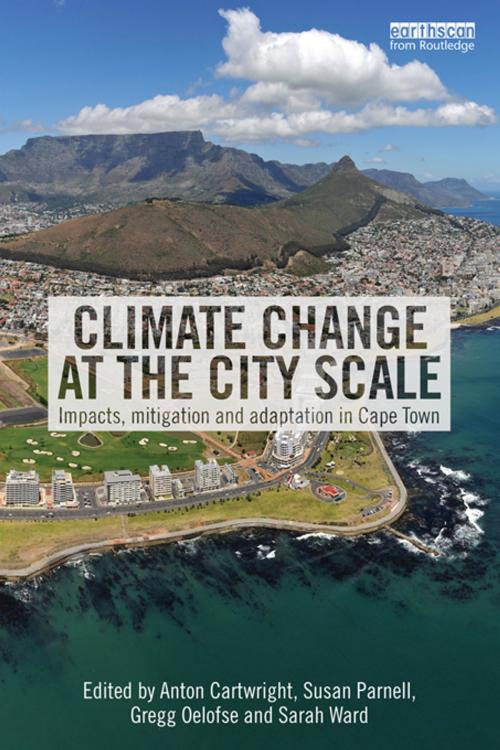Climate Change at the City Scale
Impacts, Mitigation and Adaptation in Cape Town
Nonfiction, Art & Architecture, Architecture, Planning| Author: | ISBN: | 9781136283321 | |
| Publisher: | Taylor and Francis | Publication: | June 14, 2012 |
| Imprint: | Routledge | Language: | English |
| Author: | |
| ISBN: | 9781136283321 |
| Publisher: | Taylor and Francis |
| Publication: | June 14, 2012 |
| Imprint: | Routledge |
| Language: | English |
Climate change impacts are scale and context specific, and cities are likely to bear some of the greatest costs. In recent years cities have begun to craft their own climate change responses against the backdrop of the reluctance displayed by nation-states in committing to emissions reductions and managing the consequences of climate change.
Climate Change at the City Scale presents a fresh contribution to climate change literature, which has largely neglected the role of cities in spite of their increasingly important role in the global economy. The book focuses on the impacts of climate change in the rapidly evolving city of Cape Town, and captures the experiences of the Cape Town Climate Change Think Tank, a hybrid knowledge partnership which has produced research on a range of urban governance, impacts, mitigation and adaptation challenges by the City.
Cape Town has long been acknowledged as an innovator in the area of urban environmental management, notwithstanding its limited resources to manage the demand for a more resilient and equitable future. By documenting the work and experiences of the City’s efforts to define its own climate future, the book provides a provocative case study of the way in which the science-policy interface can be managed to inform urban transformation.
Climate change impacts are scale and context specific, and cities are likely to bear some of the greatest costs. In recent years cities have begun to craft their own climate change responses against the backdrop of the reluctance displayed by nation-states in committing to emissions reductions and managing the consequences of climate change.
Climate Change at the City Scale presents a fresh contribution to climate change literature, which has largely neglected the role of cities in spite of their increasingly important role in the global economy. The book focuses on the impacts of climate change in the rapidly evolving city of Cape Town, and captures the experiences of the Cape Town Climate Change Think Tank, a hybrid knowledge partnership which has produced research on a range of urban governance, impacts, mitigation and adaptation challenges by the City.
Cape Town has long been acknowledged as an innovator in the area of urban environmental management, notwithstanding its limited resources to manage the demand for a more resilient and equitable future. By documenting the work and experiences of the City’s efforts to define its own climate future, the book provides a provocative case study of the way in which the science-policy interface can be managed to inform urban transformation.















